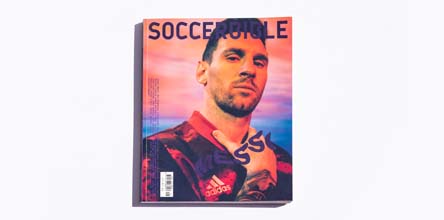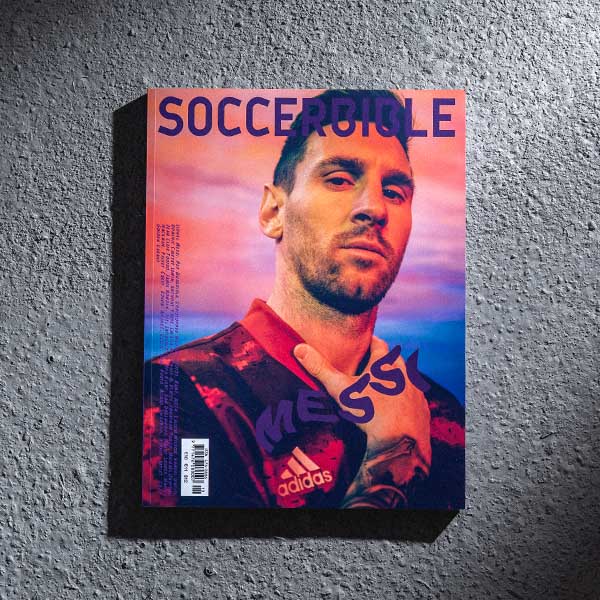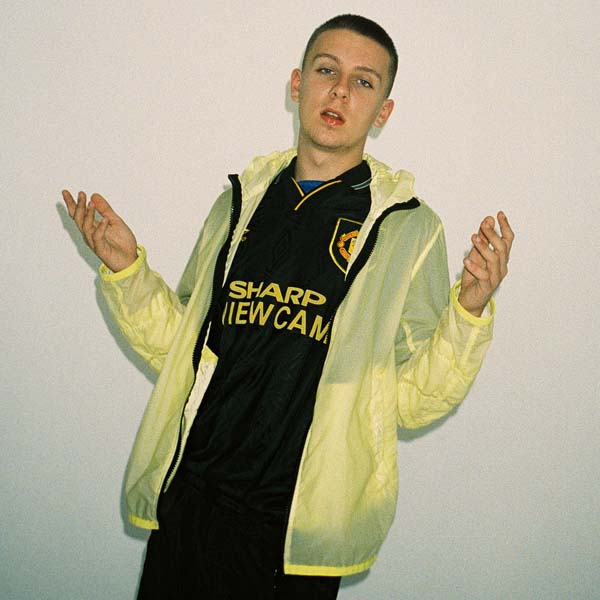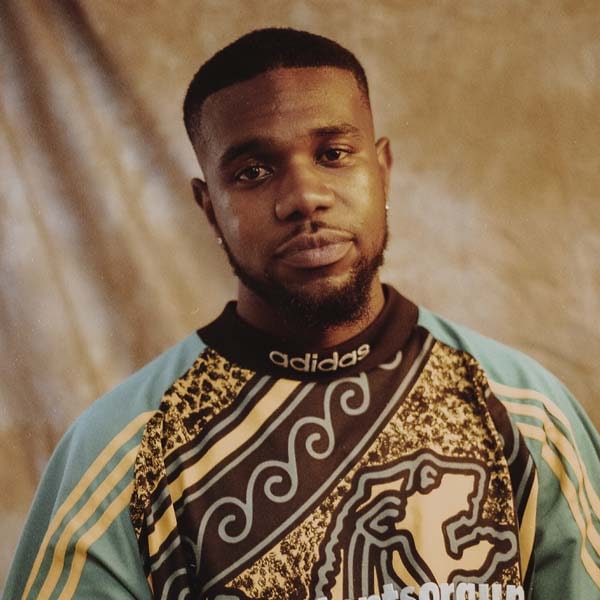In the career of a footballer, we’re told, the four years between the ages of 19 and 23 are vital. It’s the time when a promising academy talent has the chance to develop into a first-team regular, the narrow window of opportunity for any young player to really make their name.
Sadly, in the modern game, particularly at the elite level in England, doing so is harder than ever. Former Everton manager Roberto Martinez described the age range as a “void” in English football, highlighting the flaws of the loan system and bemoaning the lack of options on offer for players of such an age. There are many, many examples of talented youngsters showing huge promise in their mid-teens, only to either fall by the wayside completely, or end up having to re-establish themselves in the lower leagues having, essentially, missed out on a large chunk of their career.
Dominic Calvert-Lewin, then, should be held up as a beacon. Now 22, he’s led the line for Everton, one of the great names of English football, for the past two seasons. He’s tasted success at international level, scoring the World Cup final-winning goal for England’s U20s back in 2017, and is knocking on the door of the senior setup. He is, by any measure, a proper player.
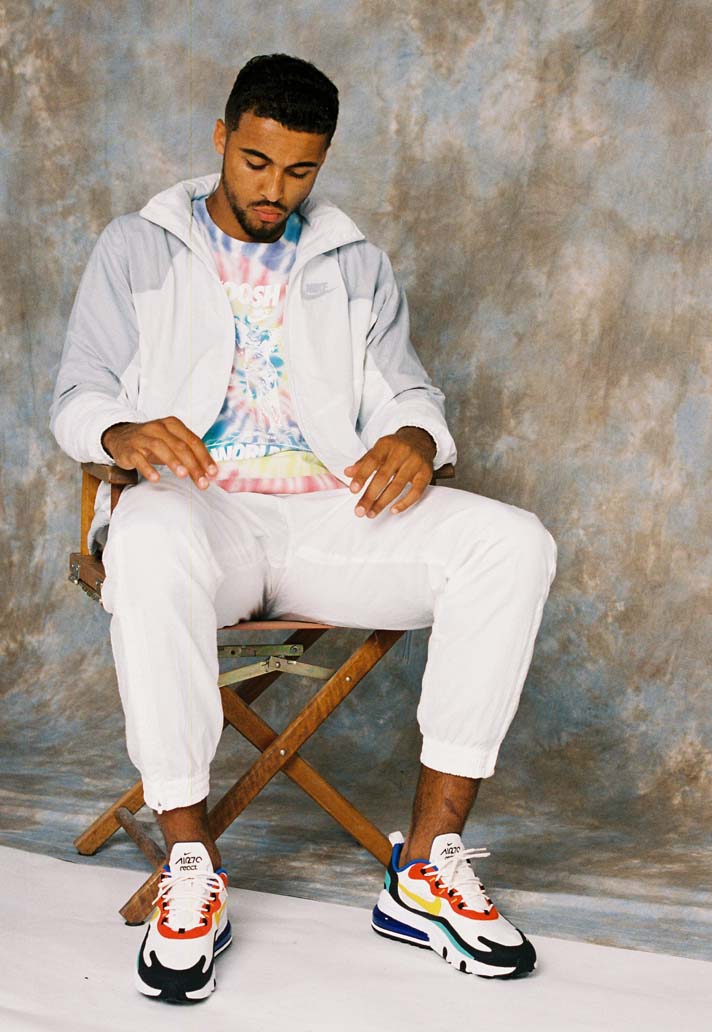
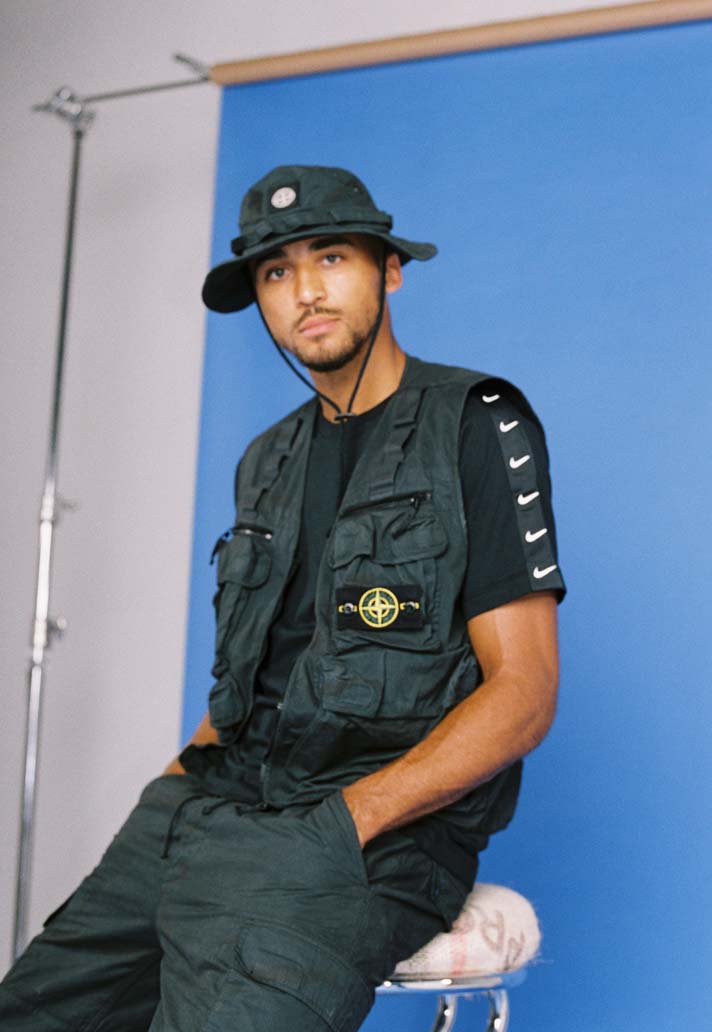
On the day Everton would reveal the designs for their impressive new stadium, we caught up with the level-headed Yorkshireman to find out just how far his own ambition extends, and how he’s gone from bossing Saturday football camps in Sheffield as an eight-year-old to playing up front for the Toffees as a Premier League star.
Looking back to your younger years, what kind of kid were you when it comes to football? Were you obsessed with the game?
Yeah. Everything that I did as a young kid revolved around football. Going to school, playing football in school, and then going straight to football training. If I didn’t have training I’d go and play on the street with my mates. For as long as I can remember. I think I first signed for a team when I was about seven, and since then just loved playing football.
That would have been in Sheffield, of course. Can you remember the moment when you first signed for Sheffield United as a youngster?
I was about eight years old when I first signed for Sheff U. I was actually training with Sheffield Wednesday and Sheffield United at the same time, but I was a Sheffield United fan so I always knew where I wanted to go. I went to a little Saturday camp, and there was a main team, and then there were kids that could just go along, and I was in that group. I remember the coach from the main team at the time, Scott Sellars, walked over and said: “Are you Dominic Calvert-Lewin?” And I just looked at him and was like “Yeah”. He went: “Come with me.” I walked over to the main team and that was that! He must have already known who I was.
It’s funny when you look back on memories like that from your childhood. A little you running around scoring loads of goals...
It is strange. At the time, I used to get really nervous playing football. I used to get crazy butterflies when I was younger. As you get older, you get less and less as you get more experienced, although obviously for the big games you still get a little bit of nerves. But I remember my team from U9s to U15s stayed relatively the same, we’d all played together for a long time, so I was playing with my mates really. And yeah, I remember scoring a fair few. And running the full length of the pitch and slide tackling people, things like that. It was a fun time.
Can you remember having expectations when you were little? Thinking you were going to go on and play in the Premier League?
I think as a young kid, first of all, you wanted to be in an academy. You knew that you were on the right path if you were there. So for me to get into the academy at the first age group possible was great, and then I stayed in all the way through. My life revolved around Sheffield United academy. So if it wasn’t my mum taking me to training it’d be my dad, my nan, my auntie, my grandad. Everyone would chip in and take me to training when they could. And it went from two nights a week to three nights a week to four nights a week. And then you have to sacrifice a little bit with your school friends, and as you get to your middle teenage years, some of the stuff they get up to – I had to sacrifice a lot. But then it wasn’t really sacrifice because I was doing what I loved and I still am now.
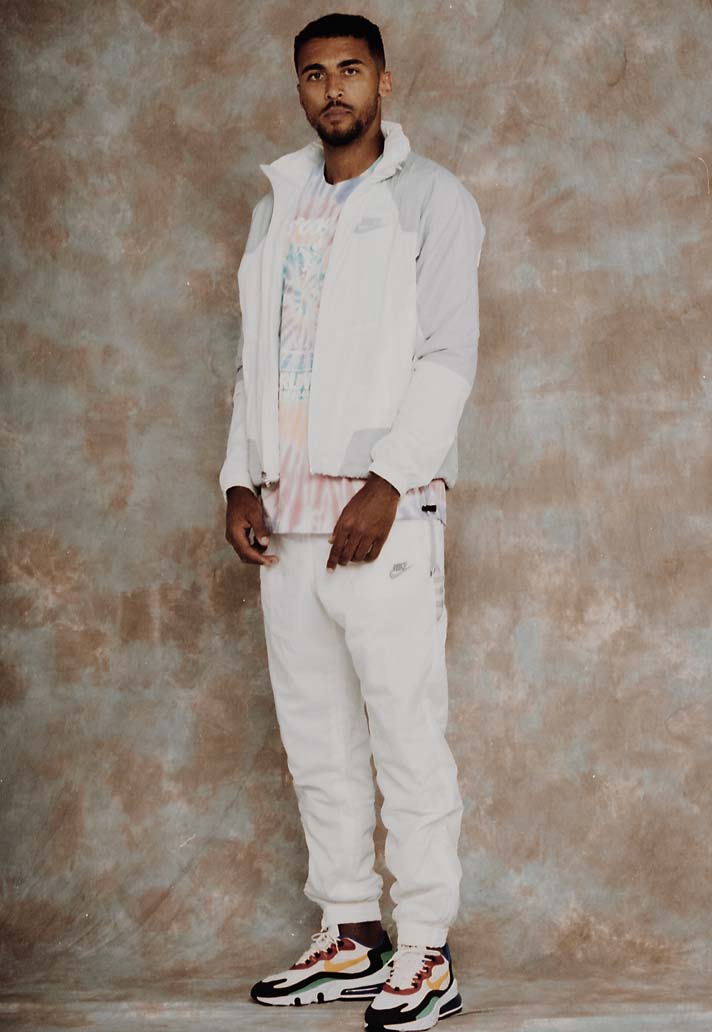
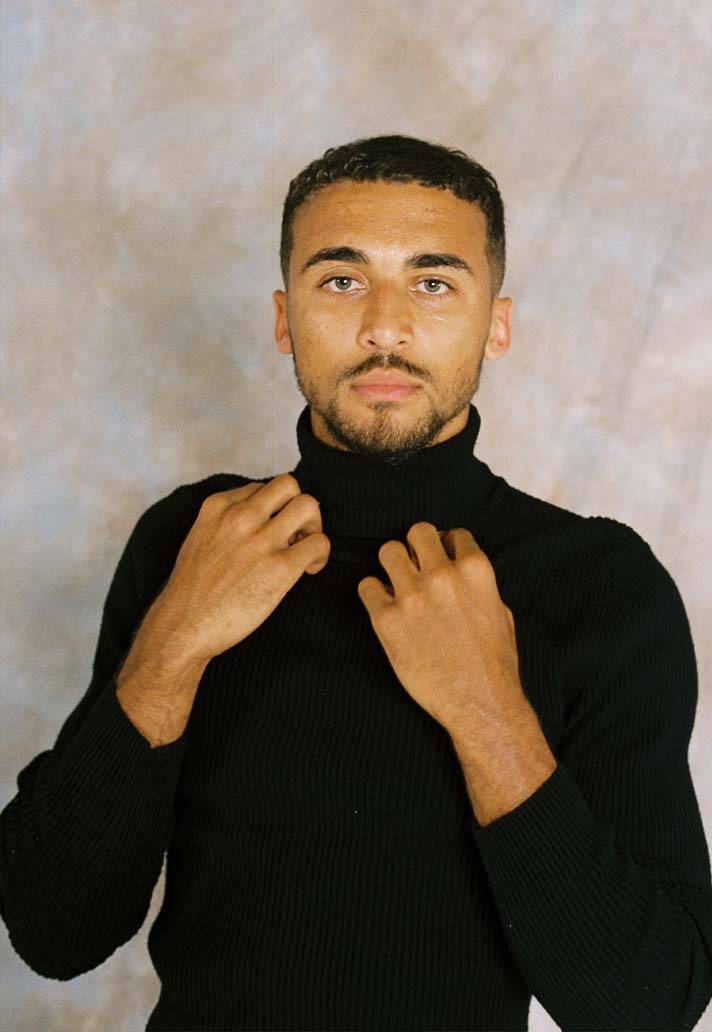
How did you deal with having to make those sacrifices and resisting temptation?
I think without realising I was always pretty narrow minded in what I wanted to achieve. Football always came first over everything. If my mates were going out on a Friday, after school, staying out late, and I had a game on the Saturday, I’d be at home. And I kind of missed that socialising part. But I figured if I really wanted to achieve what I wanted to achieve, that was what I had to do. It never really came as a chore. There were obviously some times when I was thinking “I’d like to be out with my friends now,” but those are the kind of sacrifices I made that I think helped me to get to where I am today.
How would you sum up the highs and lows of that part of your career?
I think there are actually probably more lows than highs, which people don’t really understand if they’re not involved in it first-hand. I think the people who got to see my first-hand experience, my immediate family, my mum, my dad, my nan and my grandad, they got an insight into how as a young kid you are mentally tested. And if you haven’t got a good foundation around you of people you can lean on and turn to for advice – and I’m very grateful that I did – it can be tough I’d imagine. There were times where I had injuries from growth spurts. I had stress fractures in my back. I couldn’t play for six months, at 15. You have certain setbacks like that. There are a lot of testing times.
But then when a Premier League side shows interest, you’re looking at a career in the top flight. What goes through your head when you hear the likes of Everton are in for you?
It was unbelievable, to be honest, that time period. I think I was down the rankings of strikers at Sheffield United. The manager had brought a couple in, more experienced players. They were in League One at the time, so arguably it might be what you need at that level, experience. Coming through the academy they’d always backed me, but in terms of getting into the first team, I thought I might have hit a bit of a stumbling block – I couldn’t really see a way into it. And then Everton came in. It was actually to sign for their U23s. David Unsworth, who I’d worked with at Sheffield United, got in contact with the relevant people, things materialised and then on deadline day I signed for Everton. And then on the very same day I got my first England call up to the U20s. And then I made my debut [for England]. All in the same week. From that moment on, it’s been a bit of a whirlwind to where I am now.
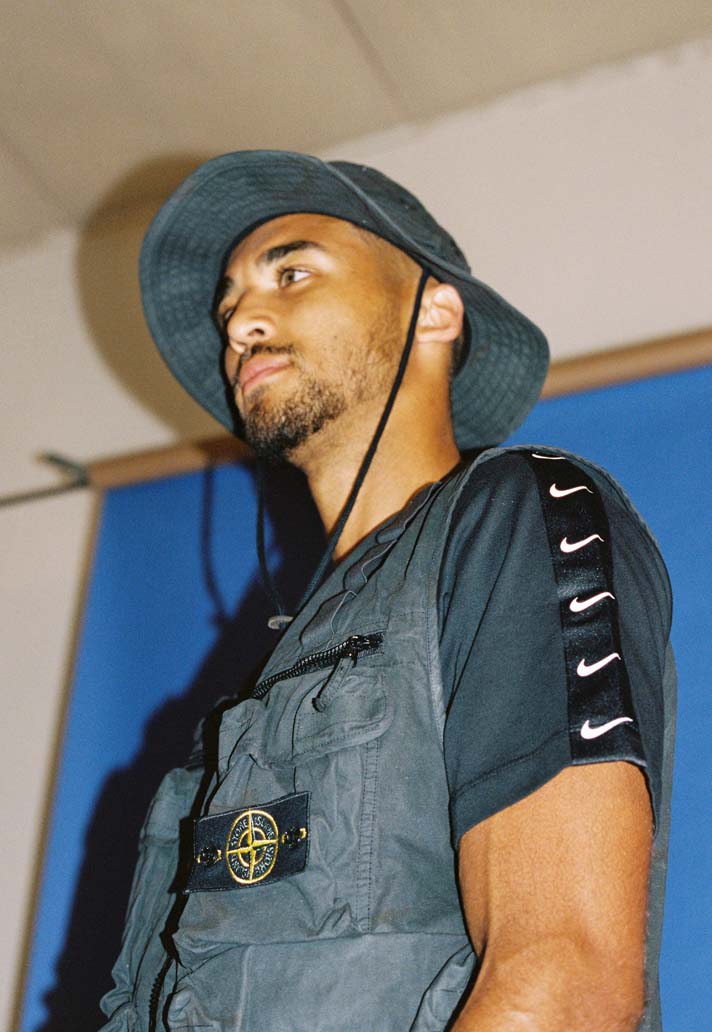
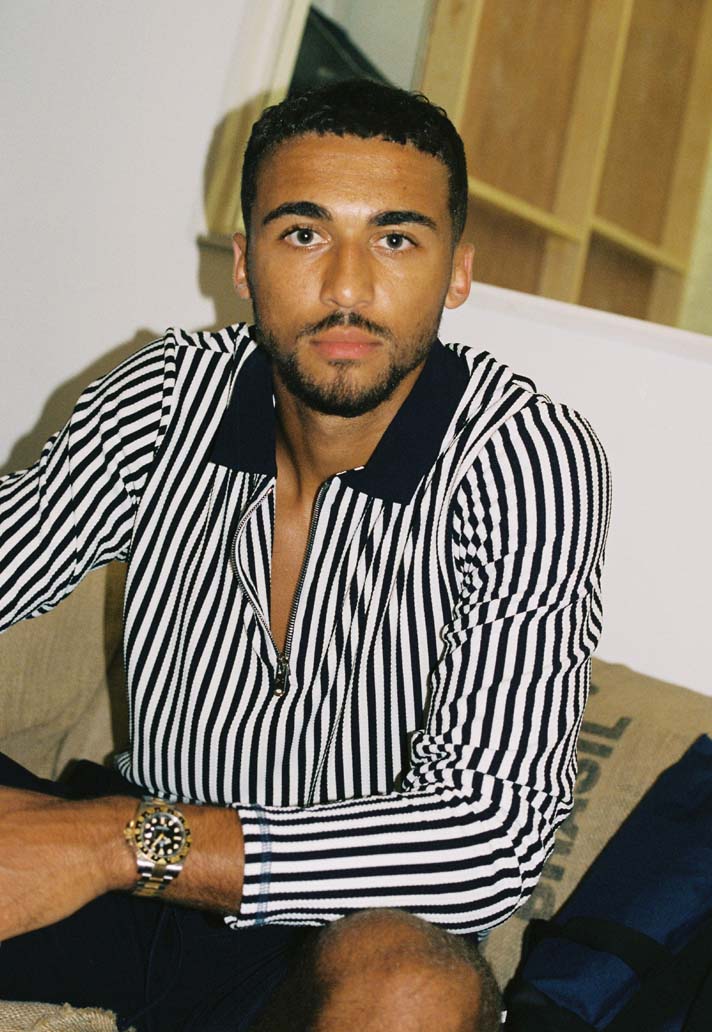
Was there a bit of a come down the next week? Like, how do you follow that?
Not really, because I was away with England. I didn’t even go into Everton. Well, I went to the training ground, signed my stuff, got a driver for the first time ever, then went straight to St George’s Park, went off and played for England, and then came back and it was my first week at Everton. So I was just getting used to living by myself, new surroundings, wearing a different badge, different training kit for the first time, and it was strange not to be in red and white anymore because I had been for so long. But I think the excitement of just being at Everton carried for a while, and then I started training with the first team. It was just one thing after another.
We noticed a little smirk there when you mentioned that car journey, the first time you got chauffeured in. You were clearly quite taken aback by that.
Yeah. It was Jenny Wisdom, who’s been involved in my whole England youth [career] for the last two years. She called me and said “I’m going to get you a driver”. And I was like, “What do you mean, a driver?” I didn’t quite understand. She was like, “Someone’s going to come and pick you up and take you to where you need to be”. So I said: “Oh right, well I need to go and sign my stuff at Everton.” We spoke about this conversation not too long ago actually, at the Euros. I just didn’t know what was going on because I was trying to sign for Everton the same day. She was ringing me saying, “You’ve got to come to St George’s!” and I was like “I’ve got to do this, I’ve got to do this”. I thought she was a journalist at first. I put the phone down and rang my agent. [Laughs]
How would you describe the Everton experience and living in Liverpool as a city? Is it something that matches your personality?
I think so. I mean in my first year at Everton I stayed pretty [low profile]. I went to training, went home, and I was just enjoying having my own place for the first time. And then my second year, I started to explore a little bit more. It’s a cultural city, there are loads of different parts where different types of people go. I get along well with the people. I like Scousers, so that helps. It’s a lovely city and a nice place to live.
You’ll be coming up against Sheffield United this season. Will that feel strange?
It’s going to be a weird one, but it’s an experience I’m thoroughly looking forward to. Especially playing at Bramall Lane in the Premier League. Although I won’t be playing for Sheffield United, it’ll be a special occasion because it’s in my hometown and I’m sure a lot of my family and friends will be there.
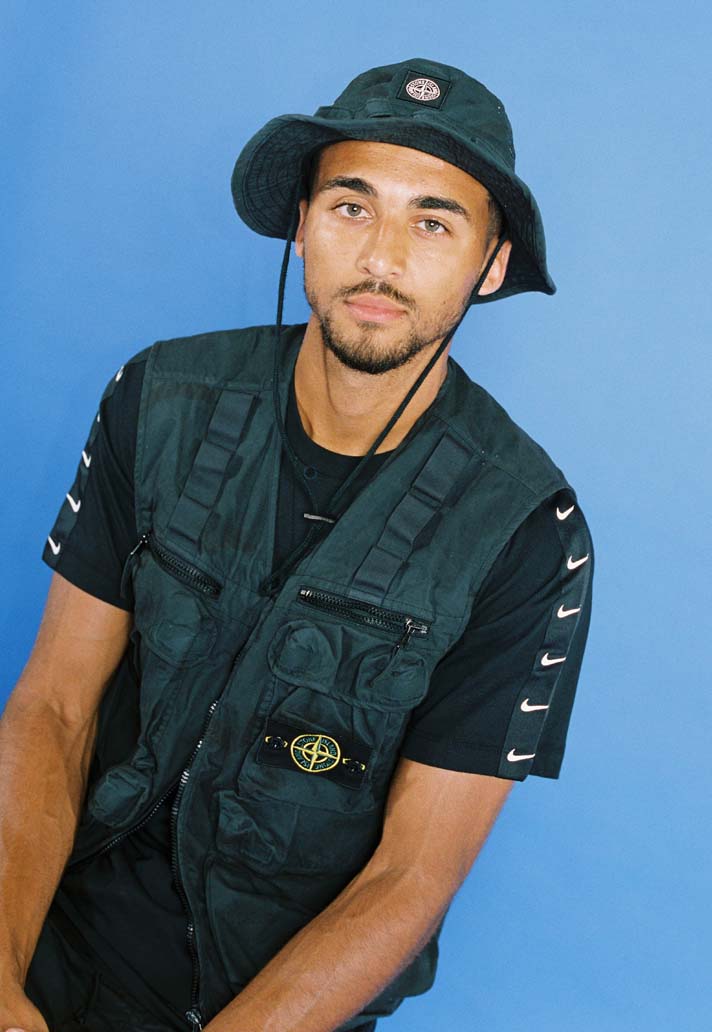
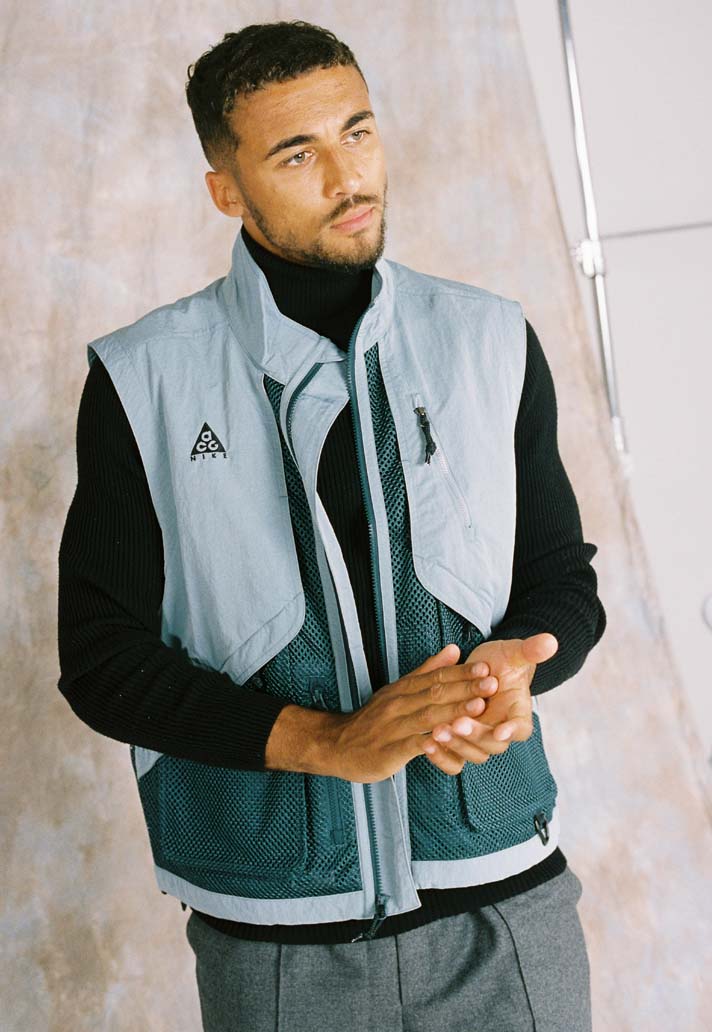
You had that wild first week at Everton as a kind of a milestone. What about winning the World Cup?
The World Cup was an unbelievable experience. And a unique one I think. At the time when we were all there, we didn’t realise how special it was. It was only when we had time to reflect on it after and think about what a good time it was that we really appreciated it. I mean I was with Jonjoe Kenny, Kieran Dowell, and we spent a lot of time together, six weeks I think it was. So you’re just having a laugh with your mates every day, playing football in a different country that you would never usually go to. And then to go on and win it how we did, and me to score the winner … it was just an unbelievable experience. I had six family members out there at the time of the final, so I was able to celebrate with my family after – just unbelievable. And I think it helped a lot of the lads going into club football the following season. It just gave us a bit of a boost and put a bit of respect on our name, so to speak, as young players trying to crack into Premier League teams, Championship teams. I think it helped me confidence-wise. I think I made maybe 30, 40 appearances for Everton, which, having signed only the year before, was a big achievement.
Let’s talk about things off the pitch. You seem to enjoy expressing yourself through what you wear. Has your interest in fashion developed over the last few years?
I think so, definitely. I mean I’ve always been into fashion. I wouldn’t say I was the most stylish or wore stuff that was certain people’s cup of tea, but I like to wear what I feel most comfortable in. And I sometimes like to wear what other people wouldn’t, because why not? I think for a career after football, fashion is growing on me, and it’s something I’d like to explore and get into more. The fashion world is a different world to the sport world, it’s an experience and something I’d like to learn about.
Where do you pick up inspiration? Are there people that you look to inside or outside the game?
I think there are a few footballers flying the flag at the moment. Hector Bellerin, I look at him and I think what he’s doing … you know he was on the LV catwalk, what a great thing to be able to do, to merge football with the fashion world like that. He’s the one that I look at, he’s a trendy guy. He’s got his own style going on and he’s doing really well. And I think, fair play. And why not? Why can’t football players be able to do that and enjoy that side of things at the same time?
It breaks down barriers as well doesn’t it?
Yeah, and right now in this period of time that’s what’s happening. I think more players will start to express themselves. I know a lot of trendy players now who are starting to wear not just what everyone else is wearing, trying to find their own feet and their own style. And I think being able to express yourself off the pitch, you don’t know if that has an effect on being able to express yourself on the pitch. It’s different characters and personalities. If you want to wear what other people don’t wear and express yourself that way, it can maybe translate into your personality on the pitch.
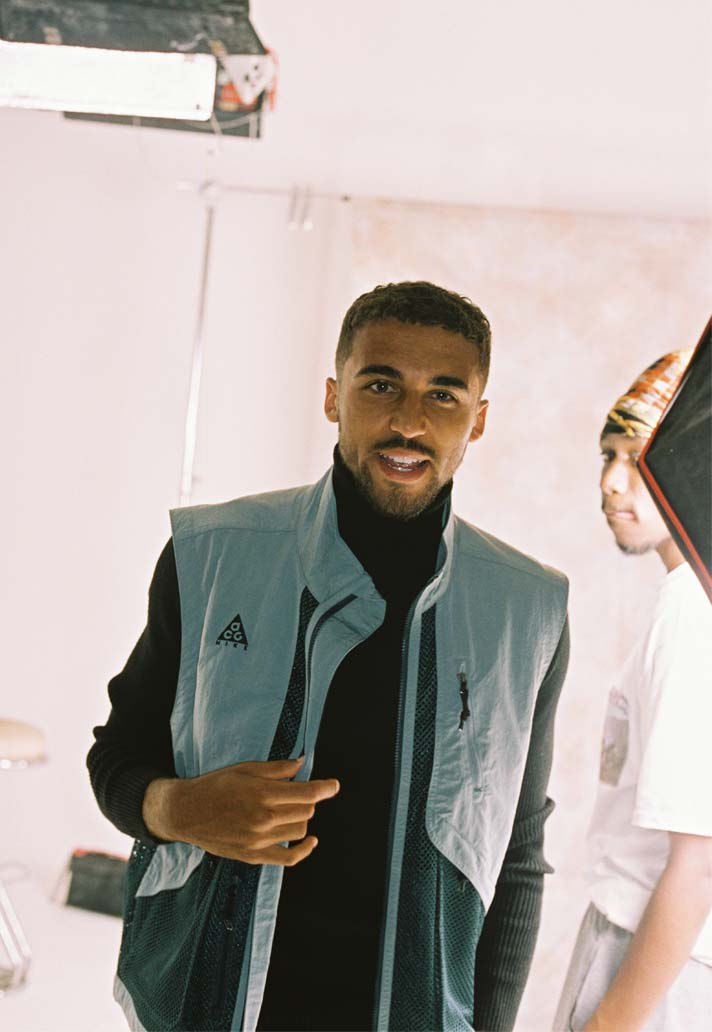
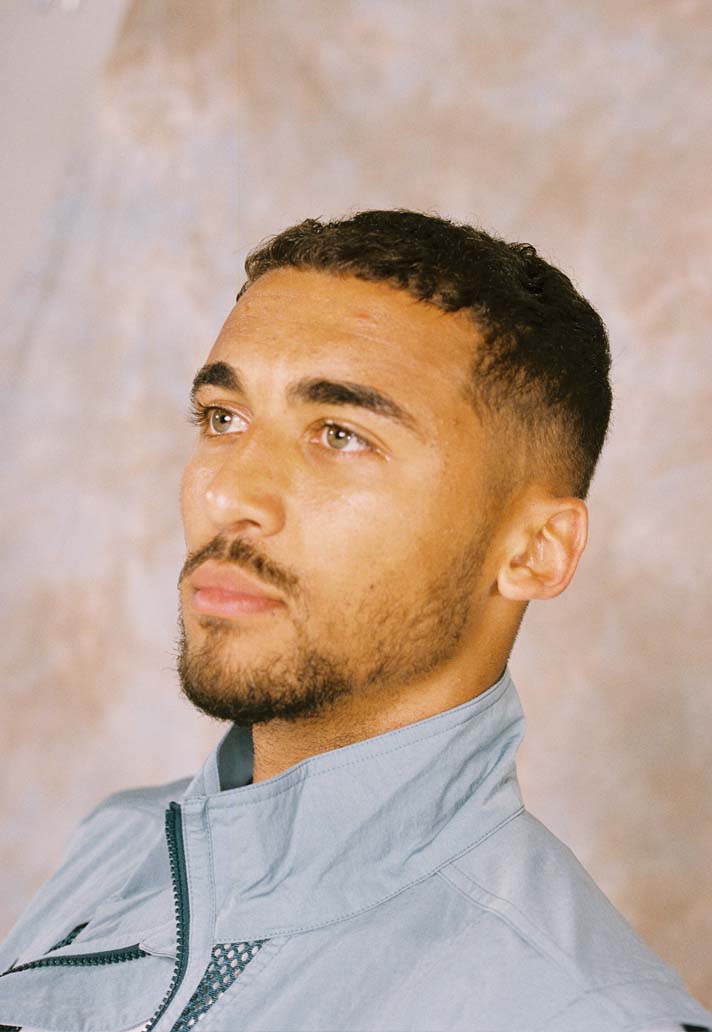
As your tastes have changed, have you looked back at photos from years ago to see what you were wearing?
[Laughs] Yeah, it’s funny, because I was having myself as much then as I am now, even though I didn’t look as good back then. I used to have a big curly mophead as well, which I didn’t really look after.
You’ve got another style partner in Tom Davies. Does it help to have other people with that level of confidence around you?
I think we’re good and we’re bad because we spur each other on to wear more and more ridiculous stuff. But he pulls it off, he’s got his own style as well, and I think we do give each other confidence. He’s certainly given me a lot more confidence since I joined Everton, to wear more stuff that I look at and like but then think “Hmm, I don’t know about that”, to the point where I’m just thinking “Yeah, I’m going to wear it”. I think we complement each other well when we’re together, when he’s wearing something ridiculously lairy and I’ll try to tone it down a little bit so we don’t look like the Chuckle Brothers, although we have done in the past. [Laughs]
It’s a good thing, especially for players coming through, because while you’re showing your interest, it’s not like you’re neglecting football as a result. It’s just expressing who you are.
I think that’s where it can be misconstrued sometimes. Because, you know, Instagram is quite a powerful tool, and if you’re not posting non-stop football stuff and you’re posting other things, sometimes people might think “Well, you don’t care”, when obviously that’s not the case. And if you’re posting football stuff and you’re too shy to express yourself and show who you are … there’s just a fine balance I think. Obviously I play football and that’s my job and I love it, but I also like other things. We’re all human.
With that in mind, would you like to express yourself in other ways in the future? Maybe create a clothing line?
I’m only 22, and I’m still finding myself, so I can’t say that would never happen. But it is something that interests me and I think if I ever thought that I had something that I felt I wanted other people to be able to wear, then it’d definitely be something that I would look into. But I don’t want to rush or force anything like that. It’s important that something like that comes organically.
Finally, looking ahead, it’s the Euros next summer. With your experience at youth level, do you see this season as an opportunity to put yourself in contention for the senior England squad?
One million percent, yeah. I’m at Everton now, and the opportunity is there, and it’s down to me to take it. It’s everyone’s dream to play for England and to represent my country at the Euros would be an unbelievable feeling. I’m playing in the Premier League, and if I can score enough goals, I can’t see why that wouldn’t happen.
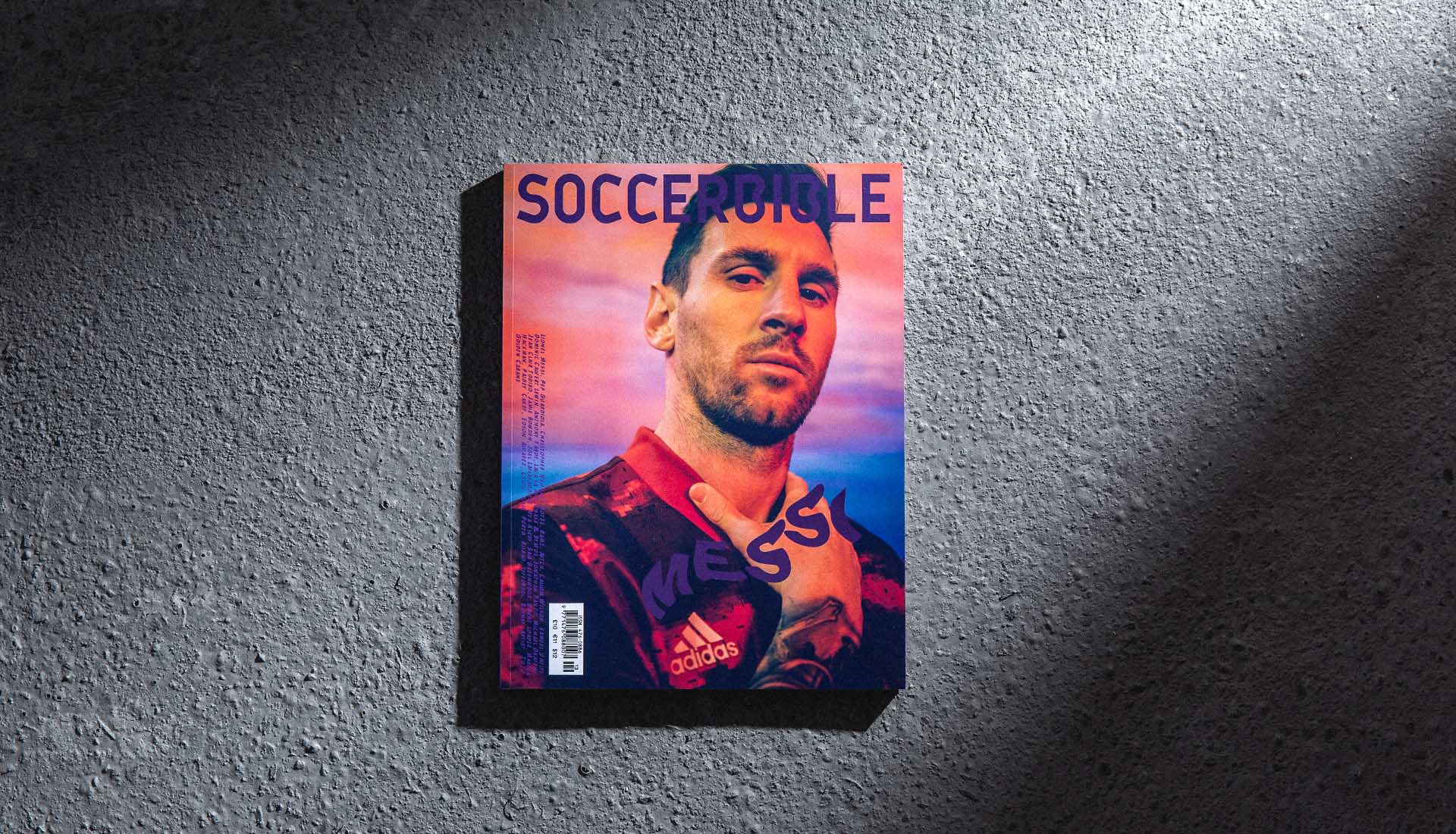
Read the full interview with Dominic Calvert-Lewin in SoccerBible Magazine Issue 13. Pick up your copy here.

